In many ways, 2015 saw the demise of cybersecurity as hackers violated website after website, taking security breaches to new levels and compromising the personal data of millions of users around the world.
The year also witnessed the steady advance of robotics and artificial intelligence, frequently giving shape to the idea that the future might be dominated by robots. Breakthrough advances in robotics offered help to the disabled, but questions swirled around the implications of artificial intelligence and whether humans will be able to cope with the pace of their own innovation.
Meanwhile, the race to bring more of the world’s unconnected populations to cyberspace heated up as several tech giants pushed to put the remaining 60 percent of the world’s population online.
The end of cybersecurity
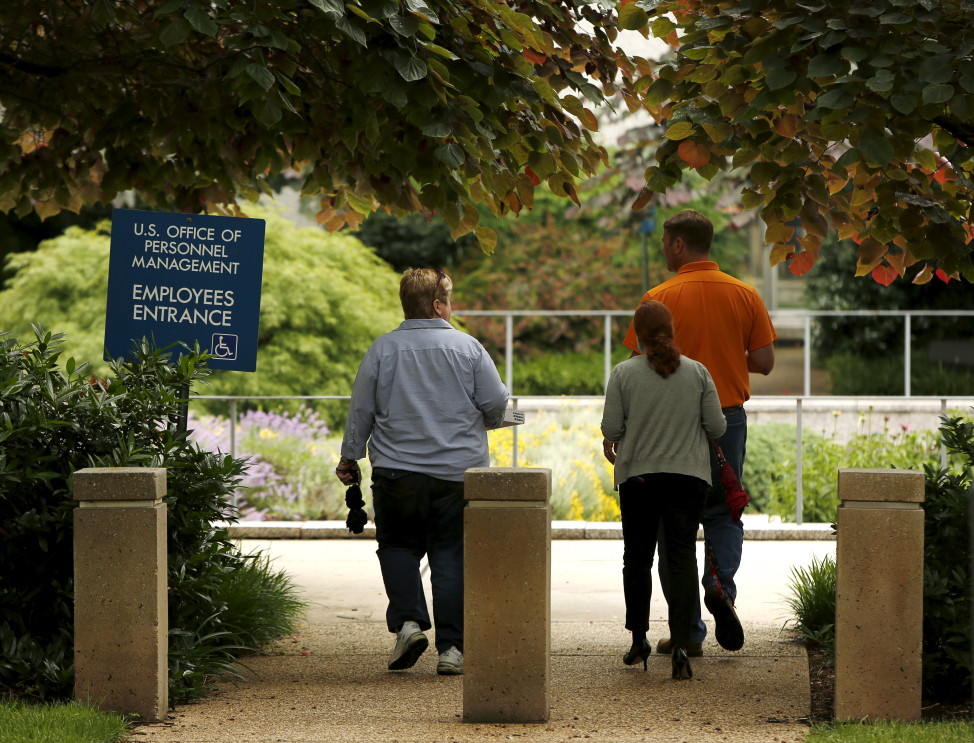
Employees of the U.S. Office of Personnel Management (OPM) return to their building during lunch in Washington, June 5, 2015. In the latest in a string of intrusions into U.S. agencies’ high-tech systems, OPM suffered what appeared to be one of the largest breaches of information ever on government workers. (Reuters)
US Office of Personnel Management Hacked
Perhaps the most noteworthy security breach of 2015 was the infamous hacking of the U.S. government’s Office of Personnel Management (OPM). The intrusion went undetected for nearly a year. Compromised data includes federal security clearances, social security numbers and some very detailed personal information.
- Massive Trove of US Voter Data Discovered on Web
- Dell Apologizes for HTTPS Certificate Fiasco, Provides Removal Tool
- Five Million Kids, Parents’ Info Hacked in VTech Products
- Infidelity Website Ashley Madison Compromised for Millions of Users
- Personal Data for 11 Million Ashley Madison Users Dumped on the Web
- China’s Lenovo Vows to Stop Preloading Controversial Software on Its Laptops
- Should Encryption Be the Enemy After Paris Terror Attacks?
- UNHCR: Digital Security, Privacy Essential for Freedom of Expression
- Microsoft Promises New Windows 10 OS Does Not Violate Privacy
- Tim Cook: Security, Privacy Not Mutually Exclusive
Internet connectivity
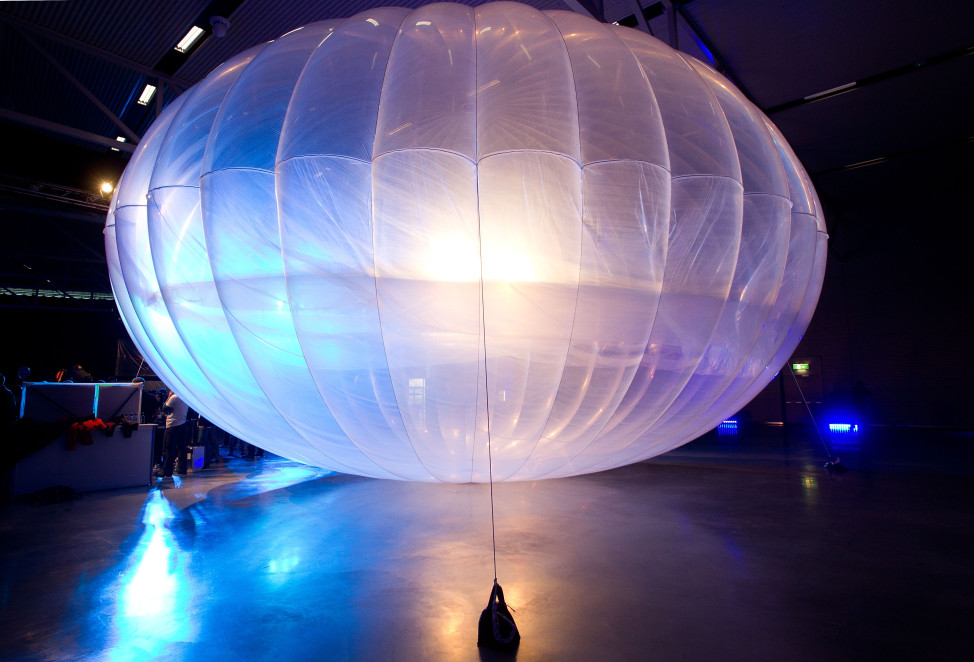
FILE – A high altitude Wi-Fi internet hub Google Project Loon balloon is displayed at the Airforce Museum in Christchurch, New Zealand. (AFP)
Four Billion Still Offline in 2015
In 2015, the high-tech race continued to hook up the world’s unconnected populations to the Internet, via balloons, drones and satellites. According to Facebook’s State of Connectivity report, only 40 percent of the world’s population is connected to the Internet – about 4 billion people, according to the United Nations Broadband Commission.
- Facebook CEO announces the company will deliver satellite Internet services to rural communities in Africa in 2016
- Taking Connectivity to the Next Level with Radio and Laser Internet
- Will Li-Fi Replace Wi-Fi Technology?
- 2015 Opens Cuba’s Window to the World, Creates Internet Dilemma
- Young Cubans Skirt Controls With Secret Wi-Fi Networks
- Thailand’s Military Move to Create Single Internet Gateway
- Thailand Gamers Fight Proposed Firewall
- Thailand Gamers Create Facebook Page to Fight Proposed Firewall
The power of mobile
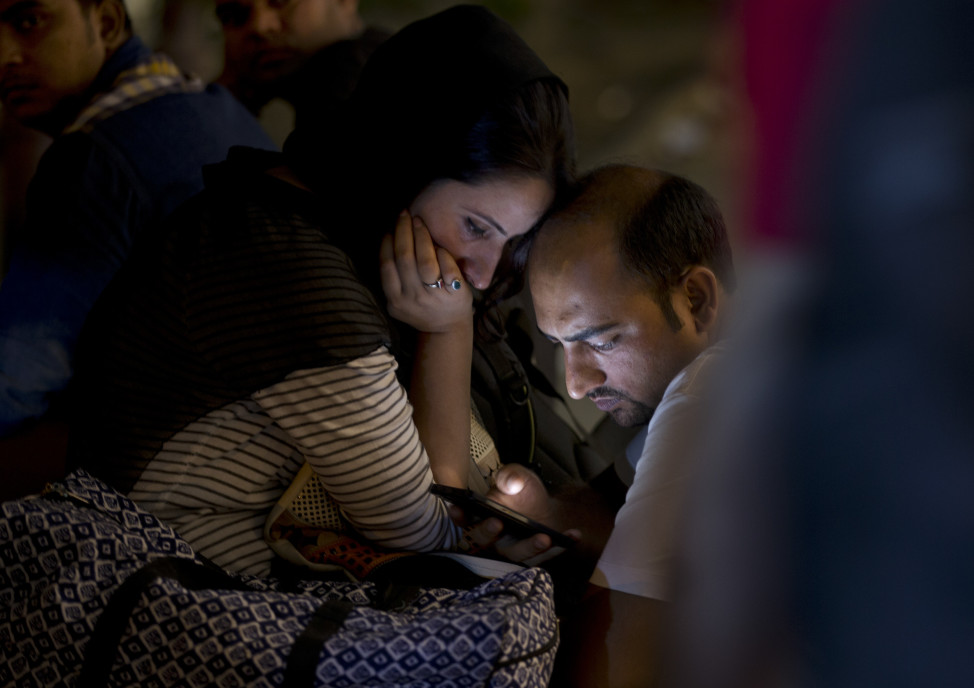
Indians use a mobile phone at a market area in New Delhi, Sept. 27, 2015, following a rare visit to Silicon Valley by Indian Prime Minister Narendra Modi. (AP)
Mobile Opens New Doors for Connecting the World
According to Ericsson’s mobility report for 2015, about 70 percent of the world’s population will be using smartphones by 2020. That means 6.1 billion smartphones will be sold globally within five years.
- 2015 Was the Year of Mobile
- Asia-Pacific Region to Reach Two Billion Mobile Users in 2019
- Smartphones Projected to Replace Computers in a Few Years
- PC Shipment Decline in 2015 Sets Bleak Record
- Mobile Devices Track Human Trafficking Victims
- Smartphones Offer New Ways to Prosecute War Criminals
- Swiftkey Launches Symbols to Help People With Non-verbal Autism Communicate
Social media
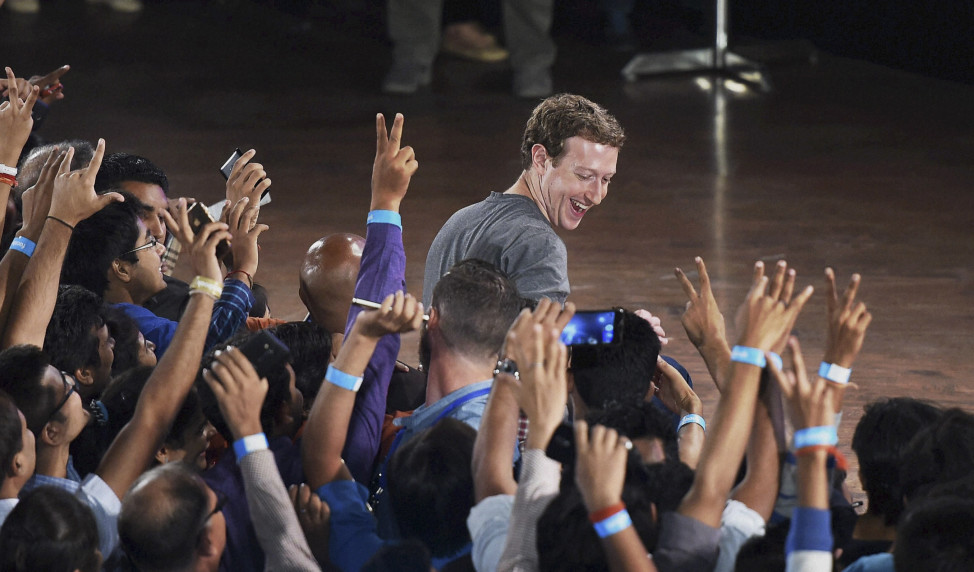
Facebook’s CEO Mark Zuckerberg interacts with technology students in a town hall-style meeting in New Delhi, Oct. 28, 2015. During his second visit to India, Zuckerberg rejected criticism that his free Internet access platforms are a luxury for people who cannot afford it. (AP)
Zuckerberg: ‘Muslims Always Welcome on Facebook’
As 2015 drew to a close, Facebook CEO Mark Zuckerberg said Muslim users are always welcome on Facebook. His statements followed a call by U.S. Republican presidential hopeful Donald Trump to ban Muslims from the United States, which sparked international rage. Trump made the call after a Muslim couple went on a shooting rampage in San Bernardino, California, in early December, killing 14 people.
- Election Rules Facebook in 2015, and Not Just for Americans
- Twitter’s Top Hashtags, Tweets and Users for 2015
- Twitter’s Top Social Media Moments of 2015
- The Little #Hashtag That Changed the World
- Emory University to Consider Banning Yik Yak Social Media App After Racist Messages
Enter the robots
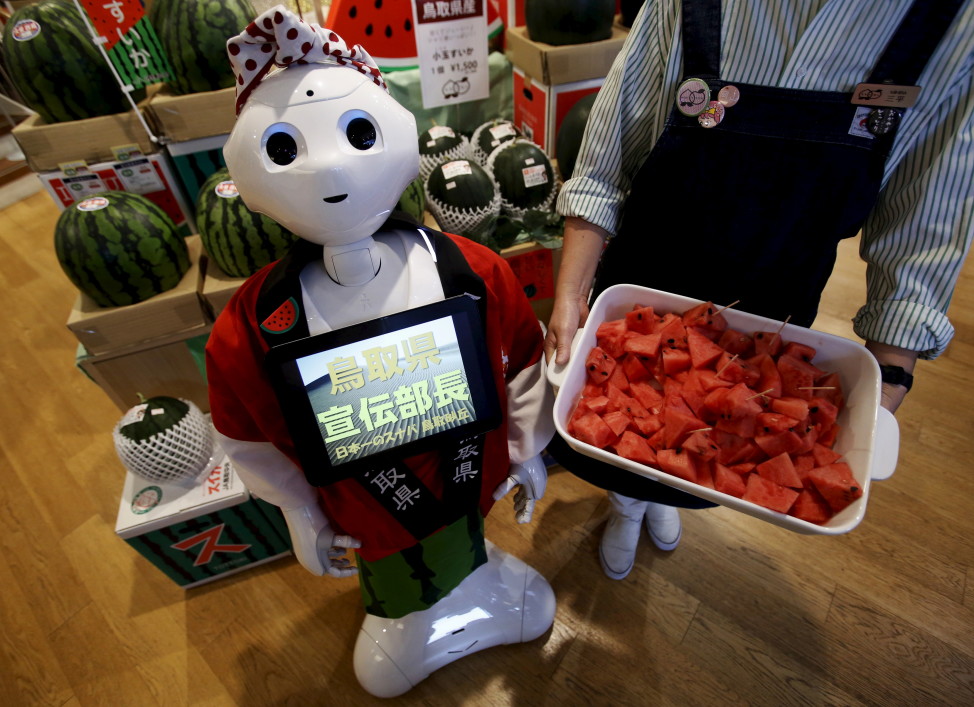
FILE = SoftBank’s human-like robot named ‘Pepper’ poses for pictures in its role as a PR manager of Tottori prefecture at the prefecture specialty store in Tokyo, Japan, July 1, 2015. (Reuters)
Japan Unleashes Robot Revolution
Advances in artificial intelligence and robotics continued in leaps and bounds in 2015, providing new hope for the disabled. In Japan, robot development continued its evolution for commerce, tourism, and elderly care.
- Are Social Robots the Solution to Our Screen Addictions?
- Elon Musk Co-founds OpenAI Non-profit AI Research Firm
- Swiss Researchers Develop Brain-Computer Interface for the Disabled
- British Pensioner Receives World’s First Bionic Eye
- Uganda’s Fundi Bots Begin Offering Robotics Training in Schools
- Nepal Deploys Drones for Recovery in Worst Earthquake Zones
- Tech Leaders Warn Against Future of Artificial Intelligence
- Computer Learns Like a Human
Digital amnesia
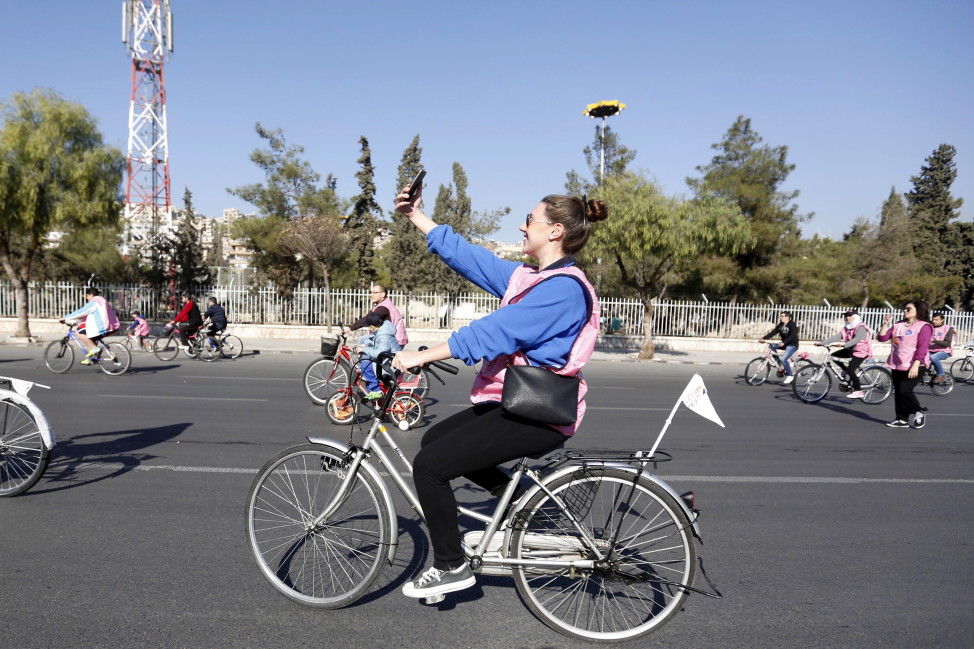
A woman takes a selfie while cycling along a street during a biking tour for charity, in Damascus, Syria, Dec. 11, 2015.
The increasing dependency on technology and addiction to mobile devices raised questions in 2015 about the ability of humans to cope with the breakneck speed of their technological innovations.
And as the fascination with mobile technology continues to deepen, more and more people are relying on their gadgets to remember their contacts and information, thereby displacing their own memories. But what happens if their digital memories are lost?

One response to “2015: End of Cybersecurity, Rise of the Robots, Digital Amnesia”
I have seen digital amnesia coming for a number of years. I started noticing it when very simple math questions were being asked and people would immediately go to a device other than their minds. Then came common everyday facts. People can not even backup their opinions from their memory of information they have to go and research the information with a few clicks. Now people have lost the ability to speak in long conversations or explain anything in detail. A person does not get an answer, they get a reply; “Google it!” Our reasoning has died off as well. We react first and leave it at that. No one thinks before they make a proclamation. It isn’t until more information shows up on their screens that they will change their opinion, maybe. If another person tells them the exact same thing the person will not believe the live person but will believe an inanimate object. Yes we have definitely lost the ability to use the world’s best computer ever made. Each one is unique, can interface with all others on earth and is very easily update. It just takes a little time and effort by the owner. They do crash at times but not all. Today some of those computers are discovering way to prevent other computers not to crash. Are those devices sitting in the palm of you hand doing that so easily as the one we greeted the world with? Now that last section 90% of the readers of this will not understand what I was talking about because their brains and minds are not developed because of the digital amnesia/